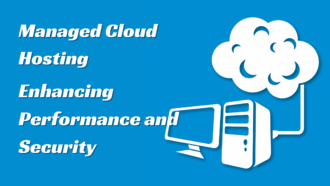What Are the Different Types of Web Hosting That Exists Today?
Finding a web host to manage your website isn’t always easy. There are countless hosting services out there, and it’s hard to understand the difference between them if you don’t have a background and tech. And with more than 13,600 hosting companies, things get even more challenging.
What Are the Different Types of Web Hosting That Exists Today?
That’s why you need to understand the types of web hosting to choose your site correctly. Below are the best website hosting services in the IT industry.
Shared Web Hosting
Shared hosting is the most common type of web hosting. It’s a starter package that’s great for people who are just starting their websites and don’t need many resources.
In most cases, people use shared hosting to host simple business websites. These websites contain only a few pages and don’t need much to run. However, some people add blogs to their sites to provide more content for their visitors.
You can find great deals with shared hosting, like $4 Cheap Web Hosting, so that you can start a website quickly. The better news is that most shared hosts have control panels that let you install website software with a few clicks of a button. You can install WordPress or any other popular website platform without contacting a web developer to do it for you.
Unfortunately, shared hosting websites share web server space with other websites. Sometimes, those websites may use too many resources and cause issues with your site. Additionally, they may suffer security issues that impact your site. If you have a Bluehost account and want to cancel it, here is a detailed guide on how to cancel Bluehost.
However, those issues don’t always happen, making shared hosting a great place to start.
VPS Server
As good as shared hosting is for basic websites that don’t need resources, you may eventually outgrow your hosting plan and need an upgrade. If so, you will look for a VPS server.
A VPS differs from shared hosting because you don’t share server space with other websites. You get dedicated resources and disk space, so you aren’t at risk of another website causing problems. A web host creates virtual servers on a computer and assigns each website to a server.
Even though you share a physical server with other websites, you’re still separated because of the virtual machine. One great thing about this is you can scale your resources up and down whenever you wish. All a web host has to do is change the virtual machine settings to give you the resources you need.
The other great thing about a VPS is root access to the server. That means you can make configuration changes to your server if you have a more complicated setup than a simple website.
Dedicated Hosting
Even though a VPS server provides an excellent resource upgrade to shared hosting, it may not be enough for your website. You’re still sharing a server with other websites despite being separated by a virtual machine. If you want a whole server for yourself, you must rent a dedicated server.
A dedicated server provides all the resources a web server offers. There aren’t any virtual machines to separate you from other websites, so you get everything to yourself.
You won’t need this type of server unless you have a resource-intensive website, but you’ll need it if you do. It provides all the benefits of a VPS server and the extra power you need to handle your website’s needs.
Managed Hosting
Setting up a web server is complex if you lack tech experience. Even if you use shared web hosting, you must learn how to use the control panel and manage your website successfully.
If you have a specific website platform in mind, you can use managed hosting to handle the hard work. The best-managed hosting is designed for particular platforms.
Take WordPress, for instance. Many managed hosts configure servers to let WordPress run the best. They handle the WordPress installation, performance optimization, website backups, security, and everything else you need to keep your website online.
A managed host typically costs more money than shared hosting, but it will take some work off your shoulders. Managed hosting is an excellent choice if you want to focus more on managing your website and not a web server.
Cloud Hosting
Sometimes, websites are complex enough to need unique setups. You can’t just throw everything on one server and expect things to run well. That’s where cloud hosting helps.
You can connect your web servers to an internal network with cloud hosting. This is useful because you can distribute resources dedicated to specific applications instead of relying on a general setup for everything.
In most cases, you’ll create a separate server for your web server, database, and files. Once your servers are up and running, you connect them to an internal network to keep everything running.
Now You Know the Main Types of Web Hosting
You can’t afford to pick the wrong web host when you rely on your website to produce results for your business. You need to understand the ins and outs of the types of web hosting to gain enough knowledge to make the right choice. Remember the web hosting services above during your search to ensure you make the right choice.
Do you want to learn more about what it takes to maintain a website after it’s launched? Check out the blog for more website administrator tips.

















